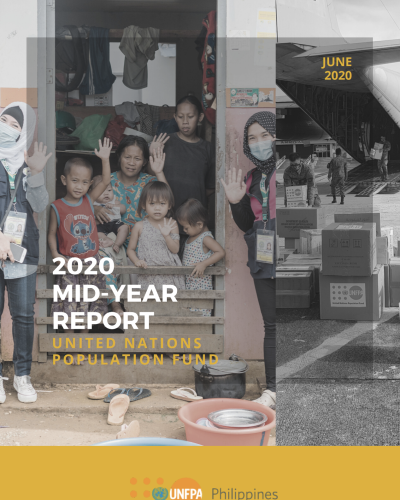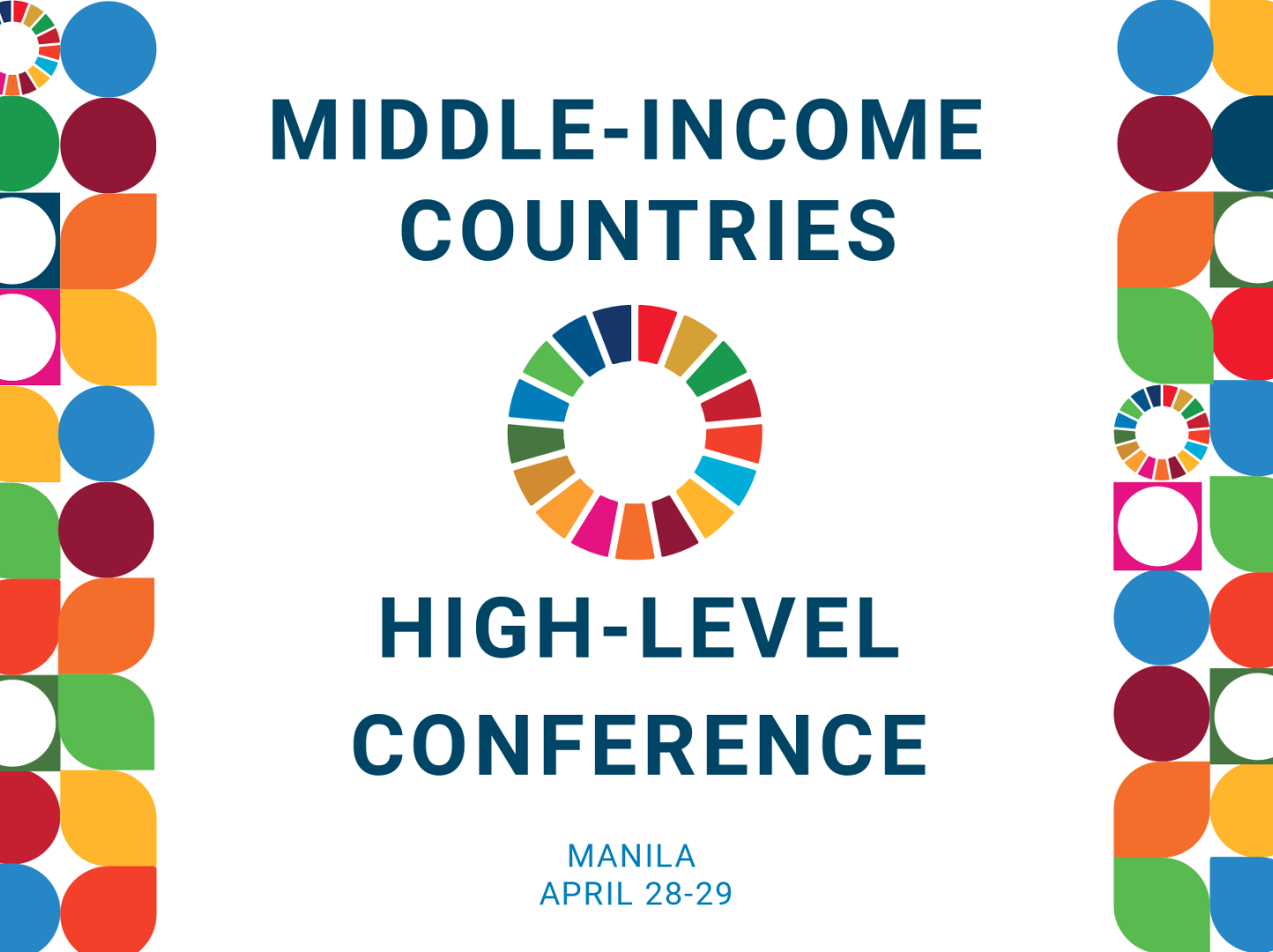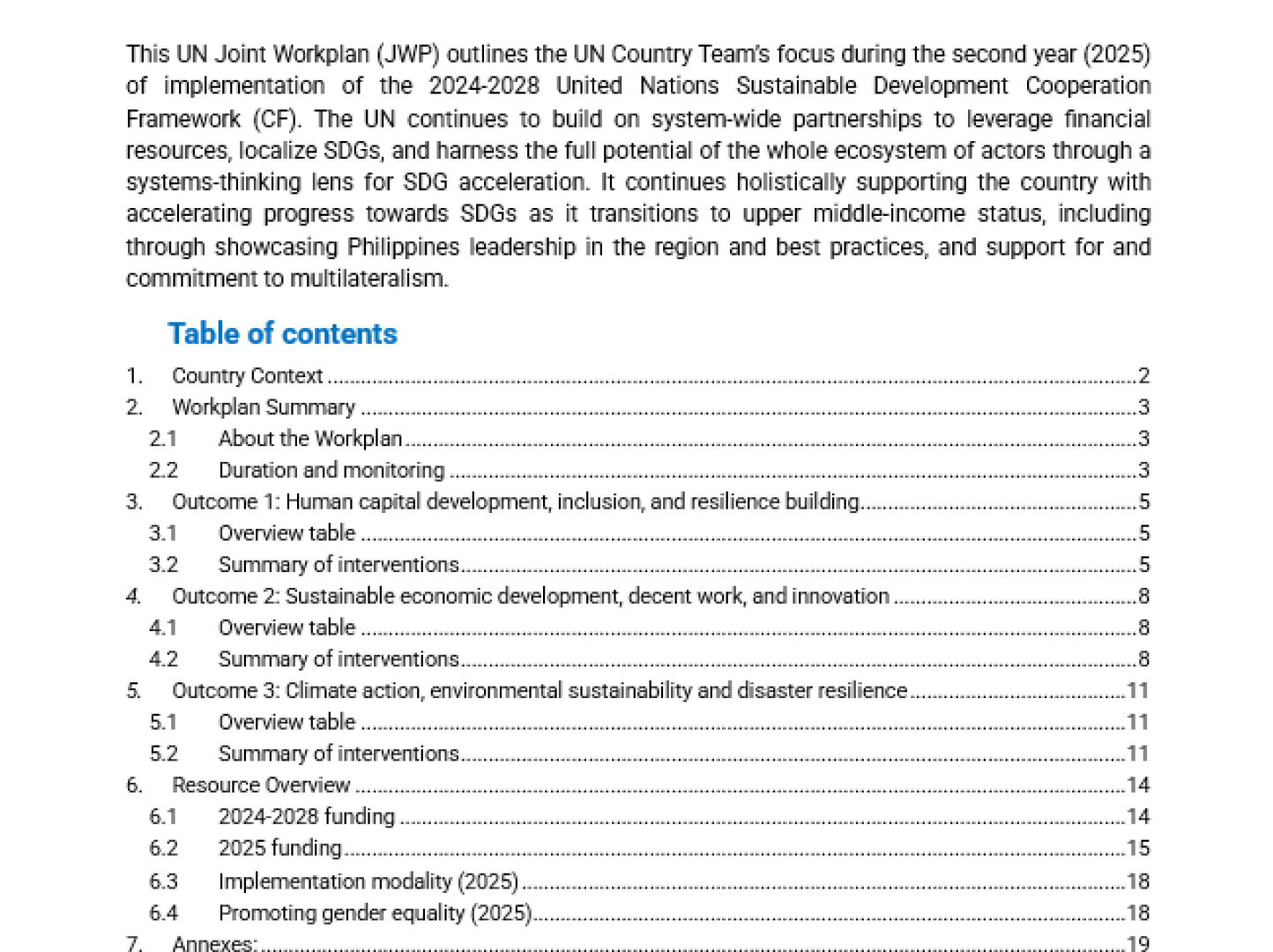UNFPA Philippines 2020 Mid-Year Report

The first half of the year 2020 - the beginning of the last decade toward the achievement of Agenda 2030 including the SDGs - witnessed a significant shift in the development landscape in the Philippines with the local transmissions of the global COVID-19 pandemic that followed the historic Taal Volcano eruption and the first typhoon for the country for the year, Typhoon Ambo (Vongfong). by the end of June 2020, in just five months since the confirmation of the first COVID-19 case in the Philippines (30 January 2020), the number of COVID-19 positive patients approached 38,000 (DOH). While the majority of the confirmed cases concentrated in the National Capital Region (NCR) with high population density, epidemiological centers started being spread to other areas. The pandemic and associated quarantine measures have further compounded the pre-existing vulnerabilities and inequalities faced by women and girls in the Philippines, especially where conflict- and disaster-induced displacements are common including BARMM. Despite these fundamental changes and unforeseen challenges faced during the period under review, the United Nations Population Fund (UNFPA) in the Philippines with additional assistance from development partners, was able to adapt to the ‘new reality’ and provide needed assistance to the most vulnerable women and young people in the Philippines and support the health system strengthening, especially for addressing their sexual and reproductive health and rights and freedom from violence.
While UNFPA continued its response to the population displacements caused by the series of earthquakes in Mindanao and the Taal Volcano Eruption, it quickly integrated and adjusted its efforts with the new demands of the pandemic. Since the beginning of the year, UNFPA provided all possible assistance to the national and local governments led COVID-19 responses with a view to contributing to “building back better and differently” by meeting the unique needs and rights of women and girls. UNFPA donated hand-held thermometers, personal protective equipment (PPE), triage tents and Dignity Kits to the Department of Health (DOH) and its designated COVID-19 referral hospitals in NCR and Taal Volcano eruption affected areas, as well as to BARMM, especially for the protection of frontliners working on maternal health and GBV. To date, UNFPA has provided a total of USD 496,000 worth of donations for health workers and hospitals in coordination with DOH. UNFPA amplified its communication activities to reinforce advocacy and behavioural change communications (BCC) by publishing a series of video messages on safe motherhood, family planning and anti-domestic violence amid COVID-19.
UNFPA also developed the Policy Paper, “Bayanihan to Heal As One Act (COVID-19 Response)”, for the Philippine Senate to advocate for the continuity of the essential services including for SRHR and GBV while focusing on COVID-19. This Policy Paper has been cited by the DOH in its daily media brief as well.




